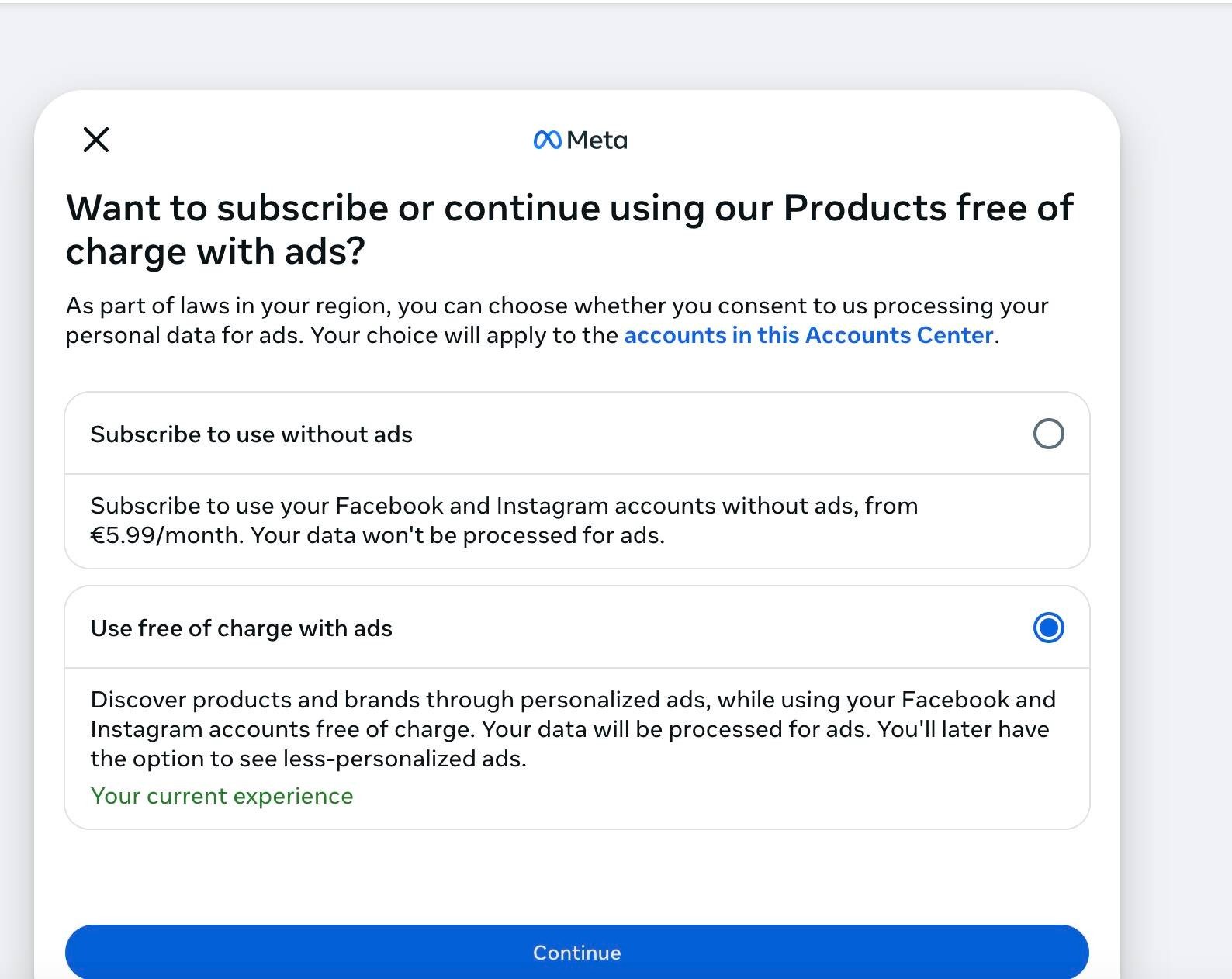 Image Credit: NurPhoto / Contributor / Getty
Image Credit: NurPhoto / Contributor / Getty Meta has announced plans to appeal a major decision by the European Commission, which ruled that the company’s controversial pay-or-consent advertising framework violates the Digital Markets Act (DMA).
The pay-or-consent model is a system used by companies like Meta where users are presented with two options: either they agree to the collection and use of their personal data for purposes such as targeted advertising, or they pay a fee to access the service without their data being exploited in this way.
Supporters of this approach argue that it gives users a choice between privacy and a free service funded by advertising.
However, privacy advocates warn that it effectively pressures individuals into surrendering their data, as many people may feel compelled to accept tracking rather than pay, especially when the fee is set at a level that makes opting out impractical for most users.

The ruling is just the latest in an ongoing battle over how tech platforms collect and monetize personal data in Europe.
Describing the Commission’s findings as “both incorrect and unlawful,” Meta argued that it has a right to offer personalized advertising to users who choose not to subscribe.
The company insists that it is being singled out unfairly. “Meta is the only company in Europe unable to offer both a subscription-based and a free ad-supported service. Instead, Meta is required to offer a free, reduced-ad service – less personalized ads – that leads to poorer outcomes for users, advertisers, and platforms,” it stated.
The tech giant maintains that courts and regulators in countries like Germany, France, and Denmark have repeatedly recognized the legitimacy of business models that present a paid subscription as an alternative to consenting to personalized ads.
Even so, that reasoning failed to sway the European Commission, which in April imposed a €200 million (about $228 million) penalty on Meta for its pay-or-consent strategy.
While the fine amounts to a small fraction of the company’s enormous revenue, Meta has raised strong objections.
According to the firm, the Commission’s mandate would force it to deliver a free service supported by ads that are significantly less personalized, with little regard for how viable or effective that model might be.
Meta warned that such demands ignore what it sees as the need for fair compensation in return for the services people voluntarily use, a principle the company links to continued innovation and economic prosperity.
The ruling has added fuel to a debate that was already heating up across Europe, where Meta’s advertising practices have come under growing scrutiny.


